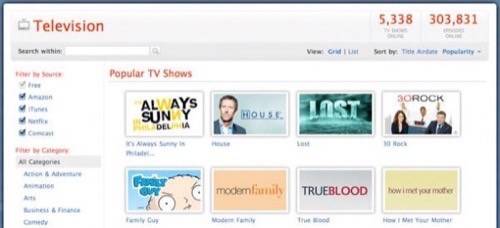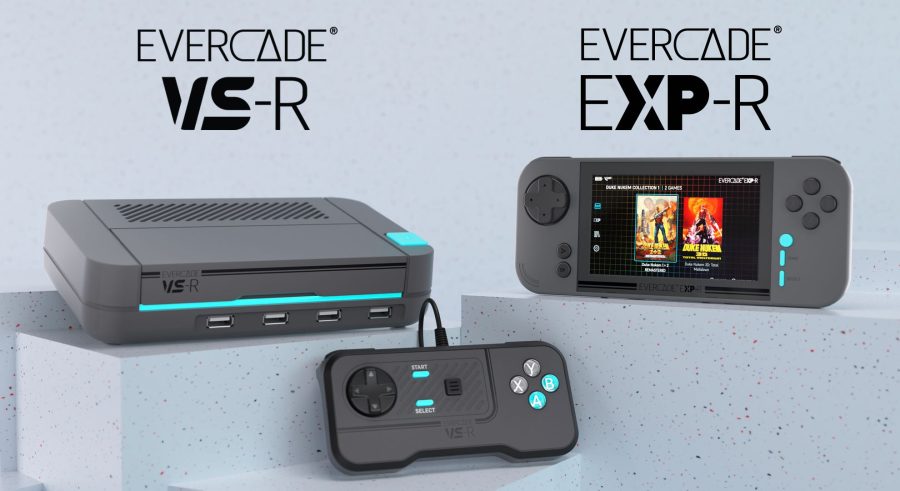Television is one of the biggest markets in entertainment, but it is at the early stages of a huge shift online. While most people still watch TV through cable and via traditional linear programming, increasingly TV will be delivered over the Internet and with the user in charge of their own programming. The big TV networks are already making moves to prepare for this shift, of course, with efforts like Hulu.

Just as interesting to watch is how new startups will design for the changing usage patterns of TV consumers. Clicker is one such company. Co-founded by ex-Ask.com CEO Jim Lanzone, Clicker aims to be the TV Guide of Internet TV. I spoke with Lanzone to find out how the idea came about and to hear his thoughts on how Internet TV is evolving.
How Clicker Was Conceived
RWW: How did you come up with the idea for Clicker and what was the inspiration for it?
“The goal is to build the ultimate programming guide for the next generation of TV, which is about navigation and discovery.”
Jim Lanzone: Every Monday, Dave Goldberg [at the time an entrepreneur-in-residence at Benchmark] and I would go to Starbucks on Sand Hill Road and brainstorm together. He pointed out to me that in the 70s, TV Guide was worth more than the big three networks combined. We agreed that television was going to be online and when that happened, finding what to watch or figuring out what you want to watch was a lot more like a search and navigation problem than a schedule grid – you know, a calendar – which was what TV Guide has been over the last 50 years.
So we just started brainstorming [on that] for about a month. And then, I got very, very serious about it. Bill Gurley at Benchmark and I then started talking more seriously about it. Dave was not ready to jump in at that point, maybe that early. And so the more I talked about it with them, the more serious I got about wanting to start a company around it. I was looking at all kinds of other things to do, other public companies to go to or take over somebody else’s start-up. This [Clicker] was definitely the riskiest, but it was the one that I felt the most passionate about. Also I loved the idea of being able to get some of the members of my old product and technology teams back together to tackle a new problem.

Building the Product
RWW: Tell us about how you started the company and the beginnings of the product.
Jim Lanzone: I raised money from Bill at Benchmark and then from Geoff Yang at Redpoint. Bill found a small little company in Los Angeles that had been putting together a very early-stage version of what I wanted to build. But mostly doing it manually, you know – not with technology. The company was called ‘Modern Feed.’ And so we actually acquired them as part of the funding. We subsumed them into our company.
I started hiring some of the main people from the Ask.com technology team [which Lanzone used to lead]. That was the foundation of the Clicker team. It really all came together in January of ’09, and then we launched into beta at TechCrunch 50 in September of ’09, and then out of beta just two months later at Om Malik’s NewTeeVee Conference in November.
The first year was spent building the kernel of the company; the real asset that we have that we can deploy in many different ways, which is the database of shows, episodes, movies, music videos, and live events on the web. And the technologies that maintain and update that on automated basis [and] organized in a structured data fashion.
The goal is [to build] the ultimate programming guide for the next generation of TV, which is about navigation and discovery. So it’s not just finding TV shows, it’s also how you decide what to watch.
Who’s Using Internet TV?
RWW: How many users do you have now and where are they coming from?
Jim Lanzone: Clicker has 1.5 million users, with over 90% coming from the United States.
“The core audience of Internet TV is much younger than I originally thought.”
We’re experiencing 25-30% monthly growth. It’s almost all organic, but they’re not coming through SEO. It has been word of mouth in Twitter and Facebook and articles and things like that.
RWW: Internet TV is a huge potential market, but it’s still early stages. Who are your current users and when will Internet TV go mainstream?
Jim Lanzone: The core audience of this thing [Internet TV], it’s much younger than I originally thought. I’m an entertainment junkie, but when we started even I did not understand the generational divide that we’re seeing with online television versus traditional television. The way I kind of break it down is under 30 and over 30. If you can remember a television that has a knob, then you’re not the target audience for internet television. I mean early adopters will, but the average person won’t.
The incredible opportunity for internet television is a world of infinite video on demand. It’s no longer about 200 channels. It’s about thousand of channels and very niche verticals; and being able to access them whenever you want. The technologies to enable that are online.

I think there are 3 types of people who are migrating to internet television.
The first is Cable Cutters, but I think that’s actually a smaller number than we think. And I don’t expect that to be a massive number for the next five years at least.
Cable Shavers are a much bigger audience – those are people [for whom] there some things on traditional TV that they can’t live without, but they can choose those in an a la carte fashion and watch everything else online.
Then the third group, Cable Nevers. These are the kids who are out on their own for the first time, going to college or leaving college and getting their own apartment, who will never get cable. Those people are the real force of change and that’s why it also will take a while.
Second Screen vs Set-Top Boxes
RWW: Internet TV products like Google TV, Apple TV, Boxee are starting to ramp up. Will those kinds of products be when Internet TV really goes mainstream; and with it Clicker?
Ultimately set-top boxes are too similar to what you already get in a traditional TV.
Jim Lanzone: Short term or long term, probably not. In the short term, I think the boxes are a useful first step for people to move their viewing experience online. But ultimately, it’s too similar to what you already get in a traditional TV. Meaning, you’re routing yourself through someone else’s controlled device to get to a body of programming that’s actually available without that device.
Ultimately, the open web will be the real winner as a platform. If you’re navigating with a traditional remote, a little box to your big screen, and I’m navigating with my laptop or iPad wirelessly through a directive experience, I will be able to watch faster and easier – and it’s plugged into everything else in my OS.
RWW: Thanks Jim!
Let us know in the comments if you’re an Internet TV user and if so how you do it.










